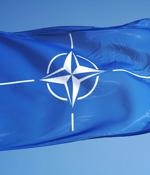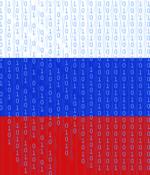Security News

A new Proofpoint report indicates that in late 2022, threat actor TA473 targeted elected officials and staffers in the U.S., as well as experts in European politics and economics. TA473 is a threat actor, known since 2021, that has targeted several countries aligned against the interests of Belarus and Russia; the group is also known as Winter Vivern for some security companies and governmental entities.

The Cybersecurity and Infrastructure Security Agency warned federal agencies to patch a Zimbra Collaboration cross-site scripting flaw exploited by Russian hackers to steal emails in attacks targeting NATO countries. Winter Vivern's attacks start with the hackers using the Acunetix tool vulnerability scanner to find vulnerable ZCS servers and sending users phishing emails that spoof senders the recipients are familiar with.

A Russian hacking group tracked as TA473, aka 'Winter Vivern,' has been actively exploiting vulnerabilities in unpatched Zimbra endpoints since February 2023 to steal the emails of NATO officials, governments, military personnel, and diplomats. Today, Proofpoint has published a new report on how the threat actor exploits CVE-2022-27926 on Zimbra Collaboration servers to access the communications of NATO-aligned organizations and persons.

The Russia-linked Gamaredon group attempted to unsuccessfully break into a large petroleum refining company within a NATO member state earlier this year amid the ongoing Russo-Ukrainian war. The attack, which took place on August 30, 2022, is just one of multiple attacks orchestrated by the advanced persistent threat that's attributed to Russia's Federal Security Service.

Japan's Ministry of Defence announced on Friday that it has formally joined NATO's Cooperative Cyber Defense Centre of Excellence. The CCDCOE is recognized as an international military organization and cyber defence hub focusing on research, training and exercises, like its yearly red team versus blue team cyber war game, Locked Shields.

The Armed Forces General Staff agency of Portugal has suffered a cyberattack that allegedly allowed the theft of classified NATO documents, which are now sold on the dark web. EMGFA is the government agency responsible for the control, planning, and operations of the armed forces of Portugal.

NATO officials are investigating after criminals put up some data for sale on dark forums that they claim is "Classified" information stolen from European missile maker MBDA. MBDA has denied any sensitive material has been compromised and said it had refused to pay the gang a ransom, claiming the data for sale was obtained from an "External hard drive" rather than its systems. According to the BBC, which saw samples of the files and has reportedly spoken to the miscreants, 80GB of data - which it was unable to verify - is being offered up for 15 Bitcoins, or approximately $297,000, and the extortionists claim to have made at least one sale.

The Microsoft Threat Intelligence Center has disrupted a hacking and social engineering operation linked to a Russian threat actor tracked as SEABORGIUM that targets people and organizations in NATO countries. "Within the target countries, SEABORGIUM primarily focuses operations on defense and intelligence consulting companies, non-governmental organizations and intergovernmental organizations, think tanks, and higher education," explains Microsoft in a report released today.

At the recent meeting of the North Atlantic Council in Madrid, NATO heads of state agreed to boost resilience to cyber and hybrid threats. NATO members will strengthen their cyber defenses through enhanced civil-military cooperation, and expand industry partnerships.

A Russian cybercrime gang has lately sent credential-phishing emails to the military of Eastern European countries and a NATO Center of Excellence, according to a Google threat report this week. One of these crews is Coldriver, which the Google team refer to as "a Russian-based threat actor." According to Leonard, Google hasn't seen attackers successfully compromise any Gmail accounts in its phishing campaigns.